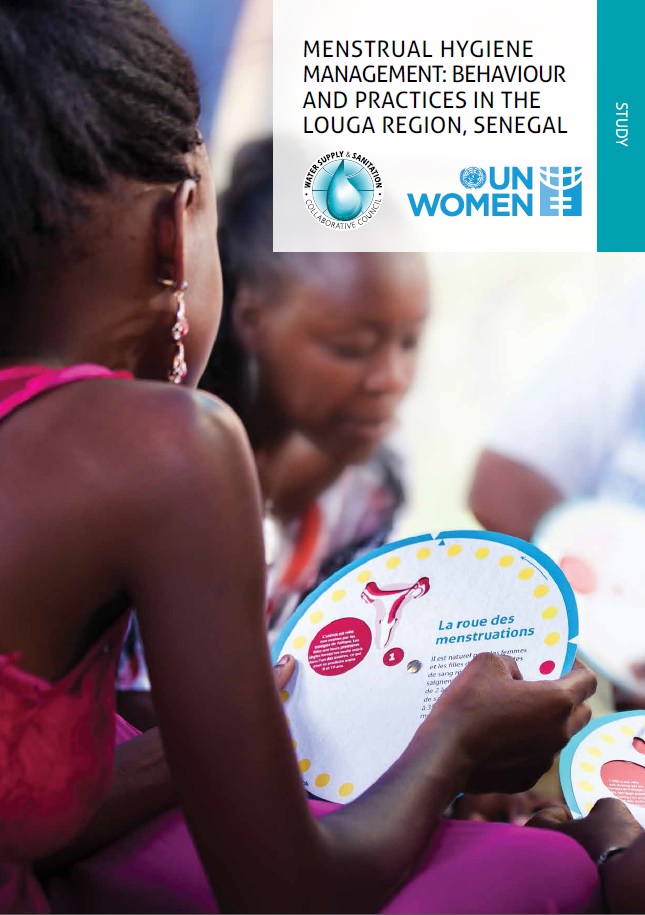
Menstrual hygiene management: behaviour and practices in the Louga region, Senegal

Hygiene and sanitation are development issues that have long been overlooked by governments. However, as a result of sustained advocacy efforts, they are at the very top of the global and national agenda today.
Senegal has a fairly progressive national strategy that aims to improve gender parity in political representation, healthcare and education, access to drinking water and sanitation facilities and maternal and infant mortality among other priorities. These issues have a critical role to play in efforts to improve living conditions and support the country’s social and economic development. Development can only be achieved by meeting the needs and improving the well-being of the population as a whole: both men and women.
Women make up half of Senegal’s population. Between the onset of puberty and menopause, women menstruate for around 3000 days. What impact does menstruation have on their personal and working lives? Do they have access to reliable information about menstrual hygiene? Can they rely on medical assistance if they need it? This report lifts the lid on an issue that remains hidden, unspoken and somewhat taboo in many African societies.
This report examines menstruation and menstrual hygiene management. Perspectives range from women’s inability to exercise their rights and access services due to the silence and stigma that surround menstruation, to poor menstrual hygiene practices and waste management.
Menstrual hygiene is complex, bringing together interrelated issues of personal hygiene and sanitation, water supply, health, education, the environment and gender. The Government of Senegal, represented by the Ministry for Water and Sanitation and the Ministry for Women, fully support the aims and objectives of the Joint Programme on Gender, Hygiene and Sanitation and the publication of this report, which we hope will inform future design, investment and decisions regarding hygiene and sanitation for women and girls in Senegal. We hope that it will inspire the region and the world as a whole.